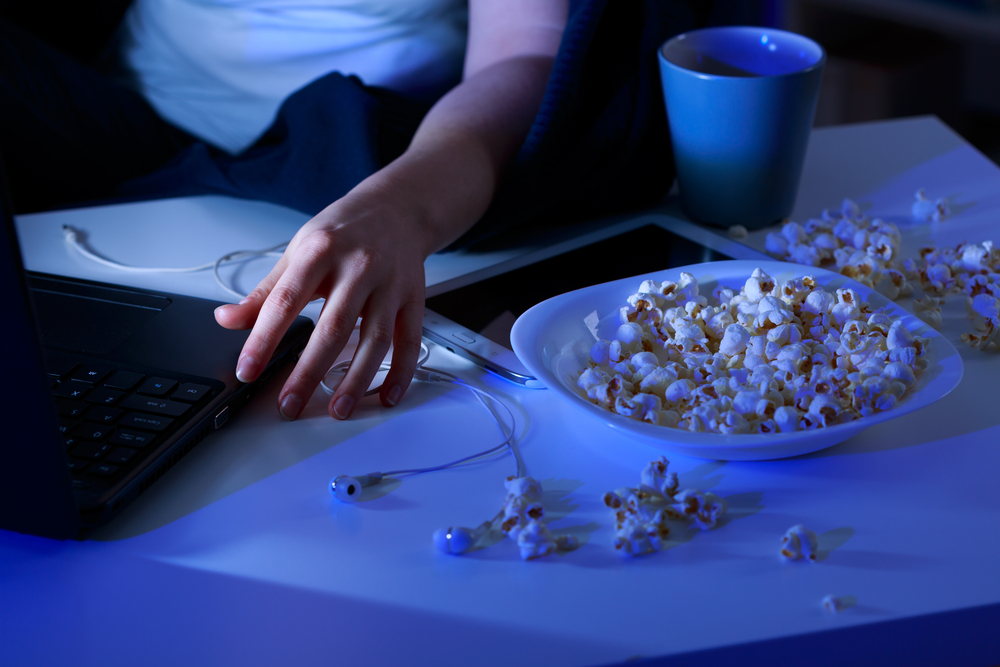Research by the National Center for Biotechnology Information (NCBI) indicates that there’s a correlation between obesity and meal timings. More specifically, people who eat two hours before bedtime are at a higher risk of becoming obese. Because of this, the National Sleep Foundation (NSF) recommends eating your last meal of the day before 7:00 p.m. Additionally, ensure that you avoid foods that contain high amounts of sugar and caffeine such as coffee and chocolate if you want to have quality sleep. With that in mind, here’s a look at some reasons why you should not have a late-night snack.
-
It May Disrupt Sleep
The circadian rhythm is a biological process that controls the sleep-wake cycle over a 24-hour-period, per the National Institute of Health (NIH). Some of the factors that affect this rhythm include, among others, diet, light, and temperature. While not all foods can negatively affect your circadian rhythm, snacking at night will most likely disrupt your sleep. This is because your body will strive to sleep and perform digestion at the same time.
-
May Cause Weight Gain
Controversial as this topic may be, eating late at night can slow down fat-burning, and hence cause weight gain. Apart from the extra calories that you gain from snacking at night, eating sugary foods can spike your insulin levels, which, in turn, condition your body to store fat instead of burning it. Insulin also triggers hunger, which may manifest first thing in the morning, or even worse, when you wake up at night. This is because the circadian rhythm conditions your body not to demand food when you are asleep.
-
May Cause Acid Reflux
One of the causes of acid reflux is lying down a few minutes after eating, and it comes about when digestion has not fully occurred. While it can be worse when you consume acidic and spicy foods, it is prudent to avoid eating anything for at least four hours before going to bed. This way, your body will have enough time to digest food before you sleep, and hence, there won’t be acid reflux.
-
May Cause Lifestyle Diseases
The circadian rhythm has a great influence on your overall body health, according to the National Center for Biotechnology Information (NCBI). More specifically, poor sleep may cause health conditions such as diabetes, hypertension, mood swings, and cancer. While a simple snack at midnight probably won’t raise your blood pressure, insomnia that results may eventually cause it.
What You Should Eat
Although snacking at night can affect your sleep and general health negatively, you can mitigate the situation by consuming healthier snacks. For instance, instead of eating sugary snacks and those that contain caffeine, opt for almonds, walnuts, and milk, foods that can enhance the quality of your sleep. Kiwifruit and chamomile tea are other foods that promote sound sleep, according to Medical News Today. Take note that avoiding late-night snacking is the healthiest option if you want to have quality sleep. Additionally, you can improve your sleep by practicing the following habits:
- Managing stress and anxiety
- Maintaining a constant sleep schedule
- Sleeping for at least 7 hours
- Working out during the day
- Taking naps during the day
These are some of the negative health effects of late-night snacking. To get started on attaining your health and fitness goals, contact Genesis Performance today. We will help you develop exercise and wellness practices around your current schedule and help you to aim for optimal health. We provide virtual assistance on a national level, so even if you’re self-isolating during this time, we are here for you.



